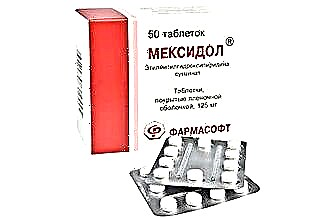We agree that the phrase "residual cough" already suggests that it remained after the illness and even after the end of treatment. Those who have already had to go through a similar situation or have just faced it know how unpleasant and disturbing it is. Moreover, the residual cough is not observed for a day or two. Naturally, there will be questions whether it is infectious to others, and how to remove this symptom faster.
Poor treatment or weak immunity?
A person with this symptom, first of all, thinks about the result of treatment. There is an assumption that the doctor prescribed insufficiently effective drugs. Then we begin to look for the reasons in ourselves, and as a result we mentally discover even non-existent problems. What actually happens in the body and why does the coughing remain? Only after receiving answers to these questions, you can decide how to get rid of the residual cough.
As you know, with infectious diseases affecting the bronchi, a cough is always observed. It helps the bronchi and lungs to clear, and when you cough, harmful microorganisms are excreted from the body. Despite the treatment, the cough can remind of itself, since the bronchi in the first time after  the person's recovery remains weakened and react to any external irritation. The cause of an attack may be:
the person's recovery remains weakened and react to any external irritation. The cause of an attack may be:
- cold air;
- a sharp change in weather or climate;
- low / high humidity level;
- Strong smell;
- dust;
- smoke;
- harmful substances in the air;
- pollen of plants.
The degree of manifestation depends on the state of the immune system, how quickly it can recover from the disease.
The fact that we are dealing with a residual cough, and not a symptom of a new disease, will be evidenced by characteristic signs. You shouldn't be particularly worried if:
- there are no other symptoms (intoxication, fever, sputum production in large quantities);
- the attack is short and weak, without sputum separation;
- duration of about two weeks with a gradual weakening;
- the cough becomes less pronounced.
When new symptoms appear, we can talk about the possibility of complications of the previous disease. Alarming signs are: shortness of breath, fever, sputum with pus, continued coughing for more than three weeks. This really often indicates that the disease is not treated, in particular, bronchitis.
With such additional symptoms, it is simply necessary to see a doctor. Based on the results of the examination, the attending physician will prescribe the drugs and procedures that are right for you.
Could residual effects be hazardous
The question naturally arises whether the remaining cough can be dangerous to others. In most cases, the answer to this question is no.  since such a phenomenon after an illness is considered the norm, and others cannot be infected from it. After the acute period of the disease has passed, a cough in the form of "boozing" may remain for a couple of months, and the former patient should be more careful, since the weakened body is more likely to succumb to infection.
since such a phenomenon after an illness is considered the norm, and others cannot be infected from it. After the acute period of the disease has passed, a cough in the form of "boozing" may remain for a couple of months, and the former patient should be more careful, since the weakened body is more likely to succumb to infection.
The disease is also important, after which such remaining phenomena are observed. It is believed, for example, that bronchitis in itself does not pose a threat to others, therefore, a cough after it is not dangerous. But this does not apply to cases where bronchitis is infectious. It occurs, as a rule, as a complication after colds, flu and any viral respiratory disease.
However, as practice shows, near a person who has had such bronchitis, only a person with a weakened immune system can suffer.
An allergic type of cough is completely safe for others. Residual effects can last up to two months. The final result depends on the immunity and the timeliness of the treatment.
Healing and strengthening measures
Many are sure that the cough remaining after the main treatment should not be alarming, and it is better to take care of strengthening the immune system. There is a grain of common sense in this, but helping the body does not hurt, and you can decide how to treat the residual cough, knowing after what disease it is observed. So, if a person has had infectious bronchitis, it is recommended to take antiviral drugs. The course must be continued up to 10 days. Decoctions based on coltsfoot, plantain, thyme are also useful, and they can be used for steam inhalation, but not hot, but warm moist.
Doctors often recommend taking mucolytics based on carbocisteine: ("Fluditek", "Ambrobene", "Libexin" and others). So, if the symptom could not be completely eliminated in the child, you can apply "Libexin". It is an antispasmodic with the ability to relieve pain and reduce sensitivity  mucous membrane, and at the same time - do not interfere with the activity of the respiratory center. The maximum dose is 200 mg / day.
mucous membrane, and at the same time - do not interfere with the activity of the respiratory center. The maximum dose is 200 mg / day.
Lazolvan is also recognized as a good drug, which can be in the form of syrup, tablets, solution for inhalation. For children, it is better to choose a drug in the form of a syrup, but in this case it is necessary to strictly observe the dosage recommended by the doctor, indicated in the instructions. Usually, children are advised to take 1/2 or 1 teaspoon of syrup three times a day.
Traditional medicine also contains a lot of tips on how to cure residual cough. Many recipes are based on the use of wild rosemary and licorice products.
So, one of the most effective remedies is prepared using primrose flowers, coltsfoot leaves, elecampane root and licorice, taken in equal proportions. Raw materials (1 tablespoon) must be poured with 250 ml of boiling water, insisted for half an hour and filtered. The resulting product is divided into 3-4 servings and drunk after meals.
If a child's cough after whooping cough haunts for a long time, it is recommended to take a mixture of honey and warm vegetable oil. The ingredients are taken in equal proportions. You need to take the mixture in small doses - one teaspoon, but several times a day.
For a faster and more complete recovery, warm milk with honey, cocoa butter, goat fat, soda, milk after figs boiled in it, sweetened eggnog is also recommended.
A few tips for prevention
It is recommended to ventilate the room more often, do wet cleaning. You can use a special air cleaner. With the onset of cold weather, you should not abuse heaters, and even better - do without them. Frequent walks in the fresh air are also helpful.
 To strengthen the immune system, replenish vitamins, minerals and proteins lost during the fight against bacteria and viruses, a diet enriched with useful substances is recommended. The diet must include:
To strengthen the immune system, replenish vitamins, minerals and proteins lost during the fight against bacteria and viruses, a diet enriched with useful substances is recommended. The diet must include:
- animal products;
- plant products;
- warm drink (natural tea with linden or raspberry, boiled milk with honey, cocoa);
- freshly squeezed vegetable and fruit juices.
Among the products of animal origin, it is recommended to give preference to lean meats, fatty fish, cod liver, and fermented milk products.
Plant foods will support the immune system well, so all kinds of cereals, dishes from legumes, pumpkins, vegetables and fruits should be introduced into the diet. Sesame seeds, olives, tomatoes, carrots, ginger, melon, currants, figs, grapes are useful.
Moderate physical activity, deep breathing exercises, where special attention is paid to the work of the diaphragm, are also recommended. All measures for a faster recovery are agreed with the doctor.



